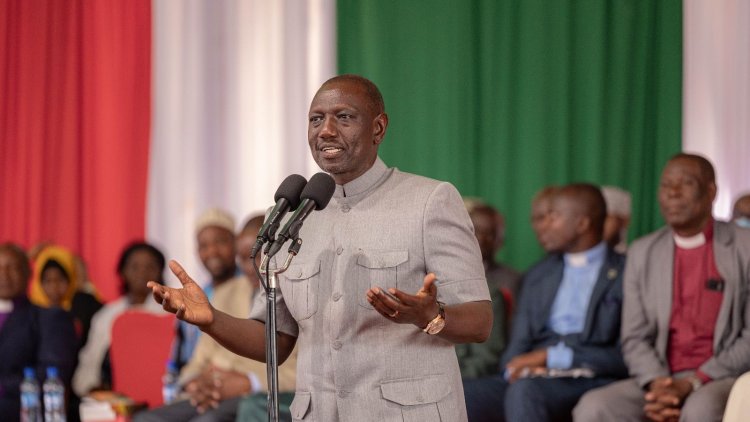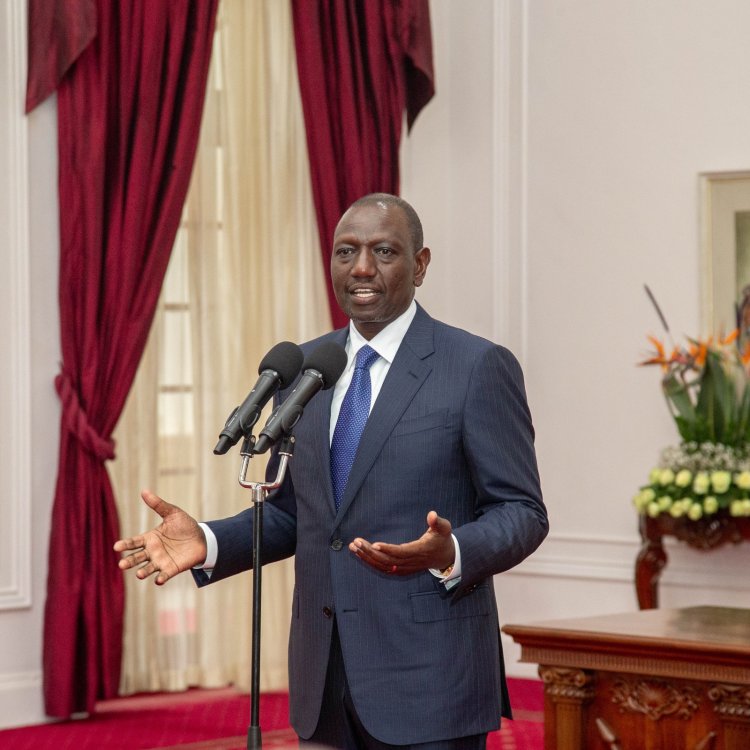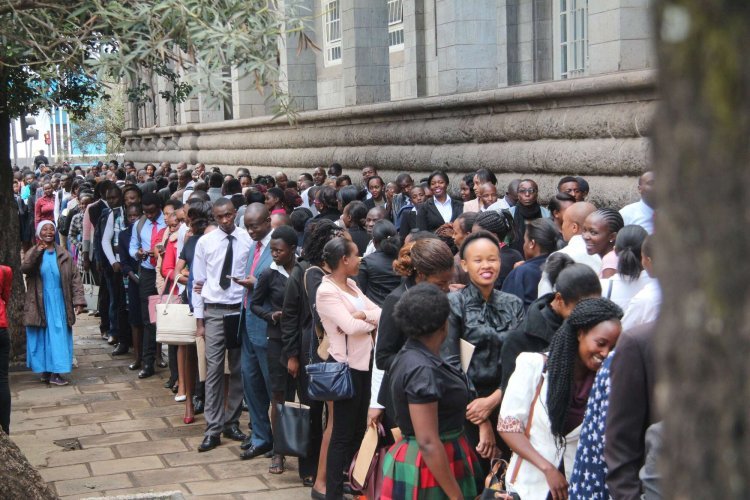Ruto Reason Why Kenya Is Headed The Wrong Direction- Infotrak
However, 81 per cent of Kenyans felt that President Ruto was the reason the country was headed in the right direction

A new survey released on Monday, July 24 by Infotrak Research and Consulting revealed that President William Ruto is to blame for Kenya heading in the wrong direction.
According to the research, 75 per cent of Kenyans who expressed that the country is heading in the wrong direction pinned the most blame on the Head of State, with the Executive blamed by 9 per cent and Parliament 4 per cent respectively.
Three per cent of Kenyans felt that they themselves were responsible for the country heading in the wrong direction.
At the same time, all leaders, the opposition, former President Uhuru Kenyatta's government and the Judiciary were cited by 1 per cent of respondents each.

President William Ruto speaking at State House, Nairobi on Tuesday, July 4, 2023. /PCS
However, 81 per cent of Kenyans felt that President Ruto was the reason the country was headed in the right direction, which shows how pivotal a President plays in the direction a country goes whilst in power.
8 per cent of Kenyans felt that they were responsible in their own right for the country headed in the right direction as both Parliament and Executive were attributed by 3 per cent each.
The opposition was among groups such as religious organisations, county assemblies and civil societies which 1 per cent felt that they were responsible for the country heading in the right direction.
Overall, 72 per cent of Kenyans believe that the country is headed in the wrong direction, with only 15 per cent saying otherwise and 12 per cent feeling that the country is headed in neither direction.
The regions with higher percentages of confidence in the country’s direction are Central (32 per cent), North Eastern (31 per cent), and Rift Valley (19 per cent).
The respondents who feel the country is headed in the wrong direction cited the high cost of living, unemployment, poverty, poor governance, bad politics, rampant corruption poor quality of education and high taxation.
Infotrak also explained that 34 per cent of the respondents who feel the country is headed in the right direction cited that the executive is working well, 29 per cent attributing it to peace in the country, and 19 per cent saying that the cost of living is affordable.
During the same research, it was revealed that 87 per cent of Kenyans are aware of the Finance Act 2023 while 13 per cent are not aware.
Consequently, 73 per cent don’t support the Finance Act with the majority coming from Nyanza, Western, Nairobi, Eastern, and the Coast region.
85 per cent of Kenyans said there is a need for the government to urgently address the issue of the high cost of living, an increase of 13 per cent since the last Infotrak survey in March 2023 where 72 per cent of Kenyans were concerned over the high cost of living.
People in North Eastern are more worried about the high cost of living with a percentage of 94 while in Eastern recorded the lowest number of 79 per cent, with women expressing more concern about the same than men.
89 per cent of women want the issue of the high cost of living to be prioritised compared to 86 per cent of men.
Compared to the survey conducted in March 2022, the number of Kenyans worried about unemployment increased by 17 per cent, from 30 per cent in March this year.
47 per cent of the respondents said lack of employment should be given priority while 20 per cent raised issues with the quality of education.
How Infotrak Survey Was Done
The survey was conducted between July 3 and July 8, 2023, and interviews were conducted via Computer Assisted Telephone Interviews (CATI).
There were 2,400 respondents in 47 counties. The survey's margin of error was +/- 2.1 with a response rate of 94 per cent.


 admin
admin 




